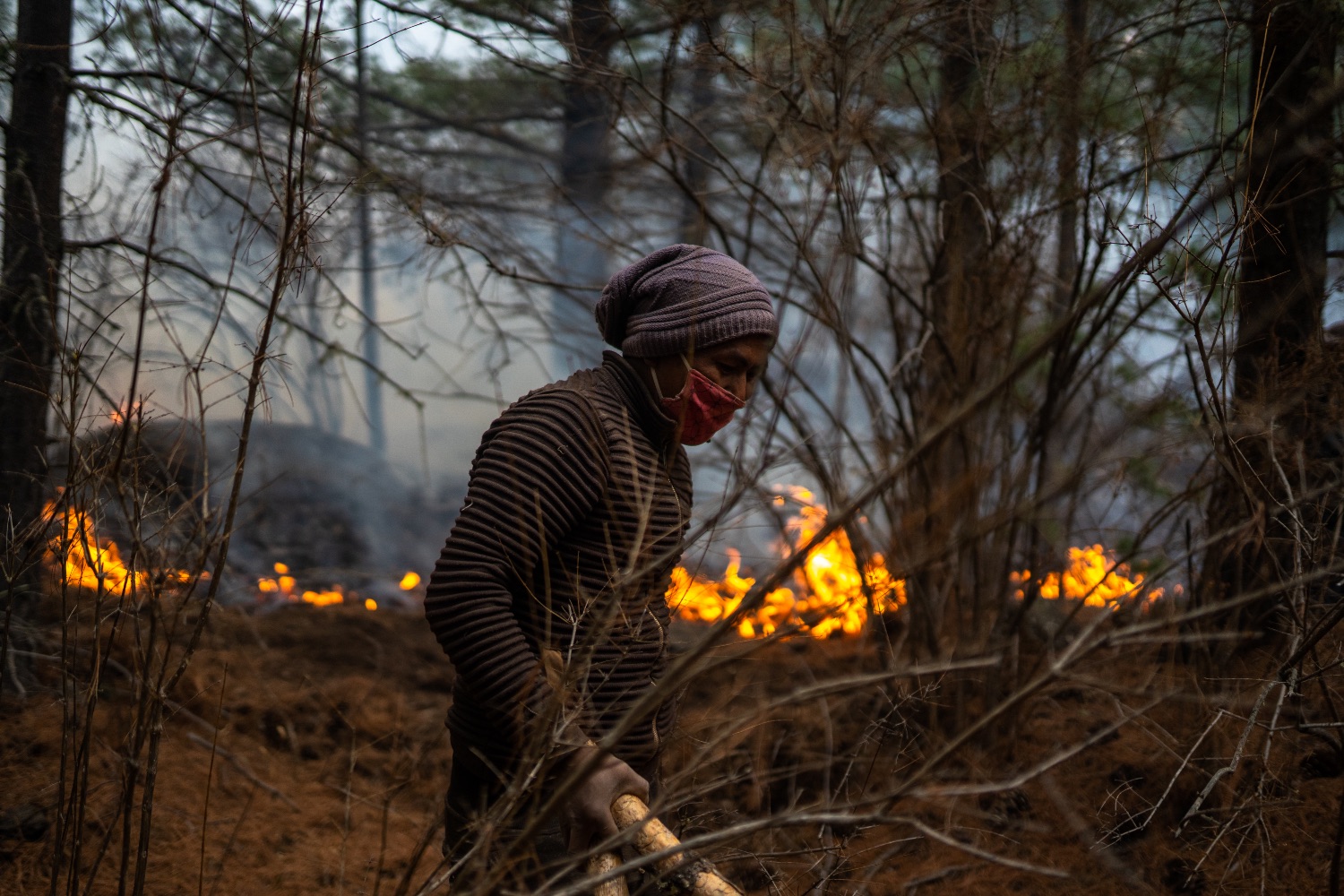Protecting Nepal's forests from fires

March 2022 was one of the hottest recorded in the Subcontinent. April also saw sweltering conditions in Nepal’s Tarai plains.
This is the season for forest fires, and the hot and dry conditions once again fanned the flames across Nepal. Here in Dhanusha district, forest fires have spread to forests that local communities have painstakingly protected.
Wildfires do not just destroy nature, but also reduce air quality which is already poor due to emissions from vehicles and industries.
Nepal is one of the most vulnerable countries to the impact of the climate crisis, and besides adapting to its impact it should also be doing its part to reduce emissions and increase forest cover.
That is however not the case. In fact, all three levels of the government have failed to show any genuine commitment to fulfil pledges Nepal made at COP26 in Glasgow last year to attain net zero carbon by 2045 and to have 45% of its area under forest cover.

In fact, the opposite is happening. Fossil fuel consumption is going up exponentially, and illegal logging has also similarly increased. The remaining forests are being decimated by these annual wildfires, which are becoming more extensive because of prolonged drought caused by climate change.
Nepal’s community forestry program is internationally acclaimed, and it has helped double the country’s tree cover in less than 25 years. But under the new federal structure, community forests have been caught in a grey zone because of confusion over jurisdiction.
The tussle between local communities, and the district forest offices have added to deforestation. Illegal logging has also similarly increased, all of which threaten to undermine past gains.
Rangers earlier used to patrol the forest to trim or remove undergrowth to prevent fires, and local communities were encouraged to protect woodlands and help extinguish fires.

After the federal transition, these practices have gone into decline and the undergrowth is full of inflammable dry leaves and twigs In some areas, there is no incentive to protect the forests anymore.
However, some forest-dependent communities have taken up the responsibility and stepped up to conserve trees since the Division Forest Office has not. A successful example of this positive trend is the Bhati Ghari community forest here in Mithila Municipality.
The community has acted fast to stop fires in their forests from spreading before they caused major damage. With support from मैकगघ foundation, Pipal Tree Organisation, and our own Mithila Wildlife Trust, local volunteers have planted 56,000 saplings of 36 types in degraded land.
Their effort even won them the Ganeshman Singh Community Forest National Prize, the first community forest in the Tarai belt to be given such an award.
Elsewhere in Dhanusa district, the Mithila Wildlife Trust has become the first to successfully implement the Miyawaki Method of intensive afforestation in Nepal. This new plantation technique can quickly turn wastelands into lush forests while reviving indigenous plant species.

Most wildfires are caused by careless disposal of cigarette butts, funerals inside forests and locals not extinguishing flames after picnics. Livestock owners also deliberately set the undergrowth on fire believing that it will bring up fresh new shoots of grass when the rains come.
Farmers also have a role in increasing wildfires as they set fire to residual straw after harvest, not realising that it can be composted to make bio-fertiliser. Some forest fires are set by poachers to clear the vegetation and catch wildlife for smuggling.
The global climate crisis is also disrupting the water cycle. This has directly impacted rainfall patterns, leading to extreme weather events.
The 1993 Forestry Act allows villagers to protect, manage and utilise their forests. It gave them a sense of ownership, and an incentive to protect and conserve. It is this community spirit that can also control the fires that are threatening past gains.
However, the federal and provincial governments must also do their bit in controlling wildfires. They must allow local decision-making, and equip rural municipalities and wards with resources to continue protecting their forests.
Dev Narayan Mandal is the founding chair of the Mithila Wildlife Trust.




